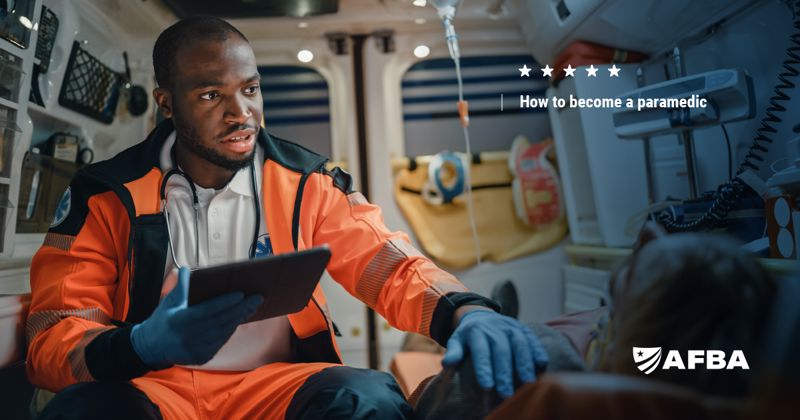Paramedics are the front lines of any medical-related 911 emergency — they’re the ones who are expected to respond to repeated life-or-death scenarios in a calm, collected manner.
This tolerance for extreme stress while maintaining a steady hand is a special skill all paramedics must have. That’s why not everyone has what it takes. But choosing to become a paramedic is an honorable — and challenging — way of performing public service.
 “The appearance of the U.S. Department of Defense (DoD) visual information does not imply or constitute DoD endorsement.”
“The appearance of the U.S. Department of Defense (DoD) visual information does not imply or constitute DoD endorsement.”Decide if being a paramedic is for you
Paramedics are similar to emergency room doctors in that they deal with medical crises that often put the patient’s life in their hands. However, their roles in the process aren’t the same. A paramedic’s job is to stabilize a patient so they’re fit to be taken to a hospital or clinic, then drive them there in an ambulance (or sometimes, a helicopter or airplane).
The ability to stay calm in an intense environment is critical. Problem-solving skills are also a must, as it’s up to you to decide what the best course of action is after you assess the situation. You’ll want strong communication skills; you’ll need to effectively talk to patients and families who are in distress and may not be able to speak clearly.
You should know what to expect from your education, including paramedic school, which will put you in a high-stress environment to prepare you for the intensity of the job. Your physical fitness will be tested to ensure you have the proper amount of strength and endurance to handle a wide variety of situations in rapid succession. Many paramedics work 12-hour shifts or more, including at night, so you’ll want to be in top shape.
Consider your personality type and aptitudes before you decide to pursue a career as a paramedic.
Get the right education
Paramedics, while extensively trained, do not need to pass medical school and they don’t have letters after their names. In short, they’re not doctors.
However, this is not to imply paramedics don’t require a great deal of education. A license is required to be a paramedic, and obtaining one requires unwavering dedication and physical and mental endurance. Start by graduating high school or earning a GED, and then you can expect to go through this sequence:
- Get your EMT-Basic certification. Normally, this takes six months. This will teach you the basics, such as cardiopulmonary resuscitation (CPR) and non-invasive treatment.
- Work as an Emergency Medical Technician (EMT) for at least six months. Many paramedic schools prefer you have some experience as an EMT before you apply.
- Enroll in paramedic training. This generally takes 1-2 years to complete and is much more intensive than getting EMT-Basic certification. It’s essentially an advanced course, where you’ll learn invasive treatments such as intubation.
- Earn your license. Next is passing the National Registry of Emergency Medical Technicians (NREMT) exam, which will put you through tests such as out-of-hospital training scenarios, trauma management and dynamic cardiology.
- Pass the state-specific exam if needed. Some states require this; others don’t.
If you’d like to get started, check out the National Registry of Emergency Medical Technicians guide of where to start training.
If you think you have what it takes, step up and become a paramedic
If you can become a paramedic, congratulations are in order: You’ve earned the honor of being a vital first responder. Becoming a paramedic and serving as one is by no means easy — but if you’re willing to test your limits, you too can join the honored ranks.

